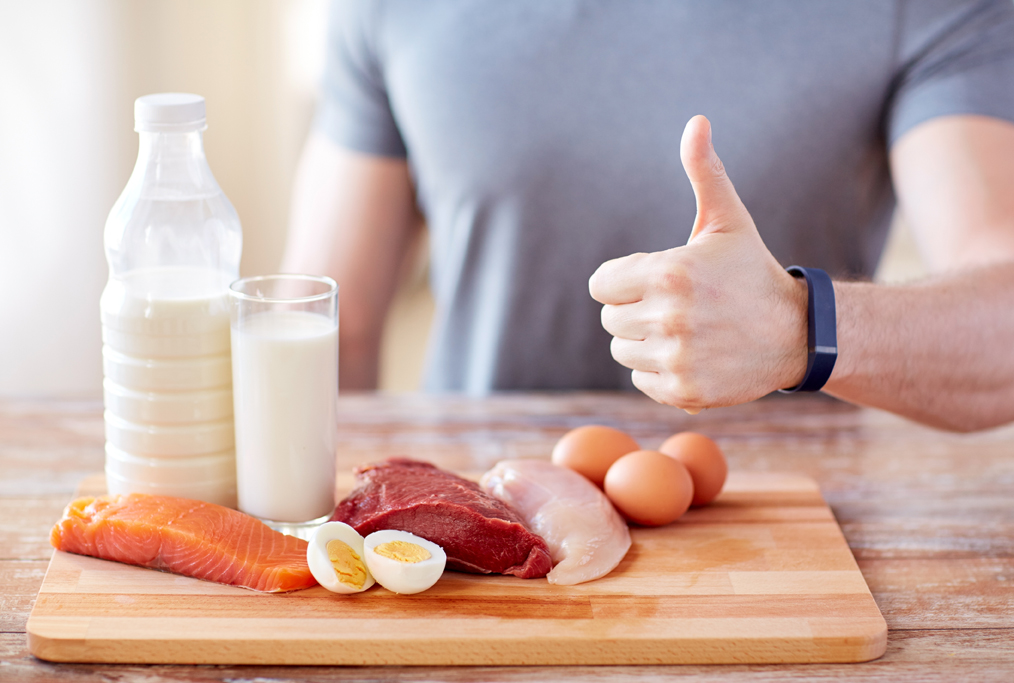Impact of Protein on Fitness
Excitement on protein has just growing throughout the years. Protein shakes, bars, or high-protein diets are really popular nowadays among fitness and healthy lifestyle lovers.
Protein is an important component of every cell in our body. Along with carbohydrates, protein is a “macronutrient”, of which the body needs vast amounts. Moreover, protein cannot be stored, so our body is in need of this nutrient fairly often. Despite its popularity, it has been revealed that 1 in 3 adults lacks protein nourishment in their regular diet. Studies have also revealed that those with a higher intake of protein were more active and therefore have better metabolic health, including major faculties to lose weight.

Are you still uncertain? Here are 10 science-based reasons from Gym Equipment GB (1) to add more protein to your diet:
Increases Muscle Mass and Strength
Probably one of the most popular reasons, but still an important one. Protein repairs, maintains and grows cells and tissues, including muscles. If you are training or trying to lose weight, it is necessary to keep a higher intake of protein than usual, because it can help you prevent muscle loss and it will increase your strength.
Reduces Cravings and Desire for Late-Night Snacking
Cravings are common and sometimes difficult to control. They usually are more related to a psychological desire than a physical need. It requires strength to overcome the temptation, but the solution may just be to increase the amount of protein in your diet.
One study in overweight men showed that increasing protein to 25% of calories reduced cravings by 60% and the desire for late-night snacking by half.(2)
For female, it seems that a higher intake of protein during breakfast reduces anxiety and desire for snacking throughout the day.
Reduces Appetite and Hunger Levels
Protein is, according to the studies, the most filling macronutrient. It actually helps you feel more full with less food. Ghrelin — the “hunger hormone” that sends signals to your brain to eat — is a clear enemy of those trying to lose weight. Protein is able to help keep it in check. It also boosts the satiety hormone peptide YY that makes you feel full.
Is Good for Your Bones
There is a part of the public that believes that protein, especially animal protein, is bad for your bones because increases the acid load that leads to calcium issues. However, most studies confirm that a major intake of protein, including animal, has abundant benefits for bone health. It helps maintain bone mass as we get older and lowers the risk of fractures and osteoporosis.
This is an important point for women, who after menopause are more vulnerable towards this disease if a low-protein diet comes along sedentarism.
Boosts Metabolism and Increases Fat Burning
Protein filled foods have been proven to naturally boost metabolism and increase the number of calories you burn up to a hundred each day. If accompanied by exercise, protein can be the best ally in your goal of losing weight.
Lowers Your Blood Pressure
High blood pressure is a cause for heart attacks, strokes, and kidney diseases. However, several studies have shown that by increasing your intake of protein you can also lower your blood pressure. Another demonstrate improvement includes risk factors for heart disease, such as cholesterol and triglycerides.
Helps Maintain Weight Loss
As we mentioned above, a rich-protein diet can boost metabolism and reduce cravings. This is indubitably convenient for those seeking to not just lose weight, but to maintain it in a long term basis. A 12-month study of 130 overweight people on a calorie restricted diet, showed that the group on a high-protein diet lost 53% more fat than a normal-protein group eating the same amount of calories.
Losing weight and becoming healthier is just the first step. Maintaining a new habit can be the biggest challenge for most people. A moderate increase in the intake of protein can help with weight maintenance.
Does Not Harm Healthy Kidneys
There are concerns about the potential harm that a high-protein diet can have on organs, especially kidney diseases. Several studies have investigated this and discovered that high-protein diets have no adverse effects on people who are free of kidney disease. It can be beneficial for people with a previous medical record to limit their intake.
Those with a healthy kidney have nothing to worry about when opting for an increment of protein in their diets.
Helps Your Body Repair Itself After Injury
Protein is the concrete of your body, maintaining the body’s tissues and organs and repairing them. Numerous studies have shown that eating more protein after an injury can help speed up the recovery.
Helps You Stay Fit as You Age
As we get older, our muscles tend to weaken, and eating protein has been shown to be one of the best ways to prevent this. Fragility, bone fractures and muscle deterioration are just some of the consequences of aging, but it can be prevented by increasing our protein intake and more importantly, keeping an active lifestyle.
At this point, you may be asking yourself, “Do I need more protein? How much is too much?” Most people already eat enough to prevent deficiency, which is around 15% of the total calories we take. However, by eating up to 30%, it can help improve metabolism, especially if training or working on weigh tloss. You should always keep an active lifestyle alongside the protein intake, and consult a professional in case of doubt. Benefits of proteins have been vastly demonstrated and is an easy way to boost your health and start building strong nutritious habits.
Lisa Sickels is a Content Writer and Developer at proteinbee.co.uk. She has been in this industry for 5+ years and specializes in writing educative content on protein, health, gym, etc. She loves to read trending news to keep her updated!
References
(1) https://www.gymequipmentgb.co.uk/
(2) https://www.proteinbee.co.uk/10-reasons-to-eat-more-protein/
